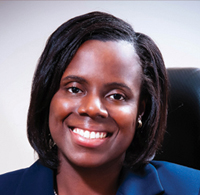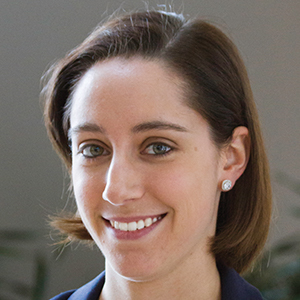Q&A with Pumtiwitt McCarthy
Tell us about your current position.
I completed my postdoctoral fellowship at the Center for Biologics Evaluation and Research at the Food and Drug Administration on the National Institutes of Health campus in Bethesda, Md., last July. The following August, I started as an assistant professor of chemistry at Morgan State University in Baltimore. I am teaching courses, establishing a research program and serving on university and department committees. My research program is focused on gaining a better understanding of enzymes that produce capsular polysaccharides in the pathogen Neisseria meningitis, one of the leading causes of bacterial meningitis.
 |
| McCarthy |
What are the key experiences and decisions you made that have helped you reach your current position?
I had great mentors as an undergraduate student, graduate student and postdoc. They were encouraging and supportive, which really helped me to gain more confidence in myself and my scientific ability. This confidence led me to seek out and go after opportunities that I otherwise would not have pursued. I also think developing my skills outside the lab, such as writing, serving on committees and giving presentations, has made me more well-rounded.
How did you first become interested in science?
I can remember being interested in the way things work even at a young age. I distinctly remember a time when I broke my parents' record player because I wanted to figure out how all its parts worked together. I really developed a love for science when I had the opportunity to do research as an undergraduate.
Were there times when you failed at something you felt was critical to your path? If so, how did you regroup and get back on track?
The transition from high school to college was particularly difficult for me, and I had to take a step back and reassess what was working for me and what wasn’t and make appropriate changes. This made me more determined not to be defined by my past failures but instead by what I have succeeded in. I think failures and disappointments are, of course, unwanted but necessary. It is through these disappointments that I can appreciate and be grateful for how far I have come.
What advice would you give to young persons from underrepresented backgrounds who want to pursue careers in science similar to yours?
I am honored and proud to be at Morgan State University, which is a historically black college or university, so that I can hopefully help make a difference in increasing the number of minorities entering science, technology, engineering and math fields. My advice is to seek out mentors who are in the position you want to be in and learn from them. I also would say work hard, never give up and always take the opportunity to learn from your mistakes.
What was the last book you read?
I am currently reading "At the Helm: Leading Your Laboratory" by Kathy Barker.
Do you have any heroes, heroines or role models? If so, describe how they have influenced you.
My mother is my heroine. She immigrated to America from Liberia in the late 1970s. She had a very good job back home but essentially had to start all over in America. She was hardworking, humble and respectful to everyone she encountered. She always told me, "To whom much is given, much is expected." I try to remember that I have been blessed and give my all to whatever I do.
What is it that keeps you working hard and studying science every day?
I would say my desire to be a lifelong learner. I want to always keep growing and continually improve. My ultimate wish is to instill a love and understanding of biochemistry in my students so that they see it as a field that is accessible to them and one they can pursue.
Enjoy reading ASBMB Today?
Become a member to receive the print edition four times a year and the digital edition monthly.
Learn moreGet the latest from ASBMB Today
Enter your email address, and we’ll send you a weekly email with recent articles, interviews and more.
Latest in People
People highlights or most popular articles

2026 ASBMB election results
Meet the new Council members and Nominating Committee member.

Simcox wins SACNAS mentorship award
She was recognized for her sustained excellence in mentorship and was honored at SACNAS’ 2025 National Conference.

From humble beginnings to unlocking lysosomal secrets
Monther Abu–Remaileh will receive the ASBMB’s 2026 Walter A. Shaw Young Investigator Award in Lipid Research at the ASBMB Annual Meeting, March 7-10 in Washington, D.C.

Chemistry meets biology to thwart parasites
Margaret Phillips will receive the Alice and C. C. Wang Award in Molecular Parasitology at the ASBMB Annual Meeting, March 7-10 in Washington, D.C.

ASBMB announces 2026 JBC/Tabor awardees
The seven awardees are first authors of outstanding papers published in 2025 in the Journal of Biological Chemistry.

Decoding how bacteria flip host’s molecular switches
Kim Orth will receive the Earl and Thressa Stadtman Distinguished Scientists Award at the ASBMB Annual Meeting, March 7–10, just outside of Washington, D.C.

